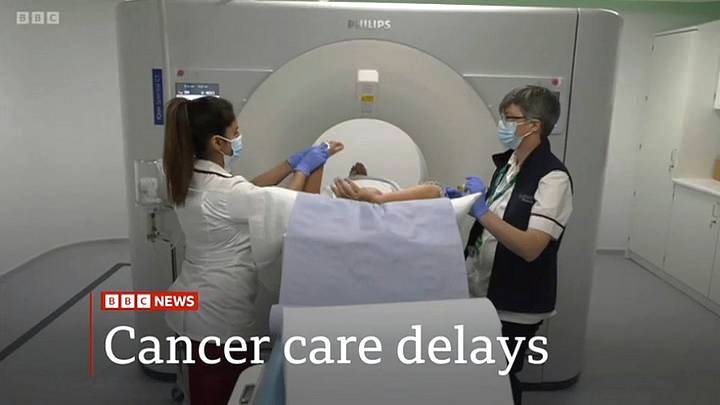 You may have seen data on delays in diagnosing and treating cancer highlighted in UK news articles.
You may have seen data on delays in diagnosing and treating cancer highlighted in UK news articles.
There has been a significant rise in waits for cancer treatment over the past few years. The data shows that the number of patients waiting more than 62 days is on average 36% in England, up from 20% four years ago.
This timing is following an urgent GP referral and whilst there are regional variations, no NHS trust, or health board has met the target.
Neither is 62 days ideal, shorter targets have been proposed and new initiatives launched to improve diagnosis. Few have so far addressed a complex situation, following Brexit, Covid and political uncertainty.
The primary issue is staff shortages, with many areas reporting a 15% to 20% shortfall in staff needed for cancer diagnosis and treatment.
We in no sense wish to denigrate the NHS’s efforts, driven by hard work from dedicated staff. They simply can not perform the impossible and dangers, or distress brought to patients are self evident.
Skin Cancer Is Cancer
People can think of cancer as a disease of other areas of the body but skin cancer is prevalent and in some forms, such as melanoma, life threatening. Prompt care is as important as this would be for any form of cancer.
In coordination with the British Association of Dermatologists, in October 2022, the NHS released fresh guidance on improving the skin cancer diagnostic pathway.
This builds on other initiatives which have seen some success, although post Covid, the numbers being referred in are at record levels. The plan is also focused on diagnosis more than treatment.
Knowing your position can bring relief, or certainty but for a proportion of patients, treatment should follow. For skin cancer, the latest NHS data suggests 91% were treated within 62 days, for melanoma, the range is 51 to 77 days.
Close to 20% of all cancers treated within the NHS are types of skin cancer, yet these numbers represent better than overall performance. An achievement to be recognised but is this sufficient.
Meeting Unknown Needs
Every day matters with skin cancer. Early diagnosis and treatment count for all cancers but the spread with skin cancers can be rapid.
Much may depend on the stage that has been reached, or could soon be reached. A situation which will not be understood before diagnosis, meaning that variable needs should all initially be seen as urgent.
There will be ample cases where growths are benign, or less critical conditions. A point to be thankful for and a relief to know but others can require immediate care, to prevent damage, or to save lives.
Taking Prompt Action
Delay when you fear a serious illness is traumatic and could damage pyschological as well as physical health. Knowing where you are removes much of the stress and brings solutions closer if they are required.
Speedy treatment then reduces anxiety further and gives the best chance of a complete cure. We would like to see this become universally available, from a well funded workforce in all our hospitals.
In the interim, our team will be pleased to help everyone we can, through accurate diagnosis and prompt skin cancer treatment where needed.
